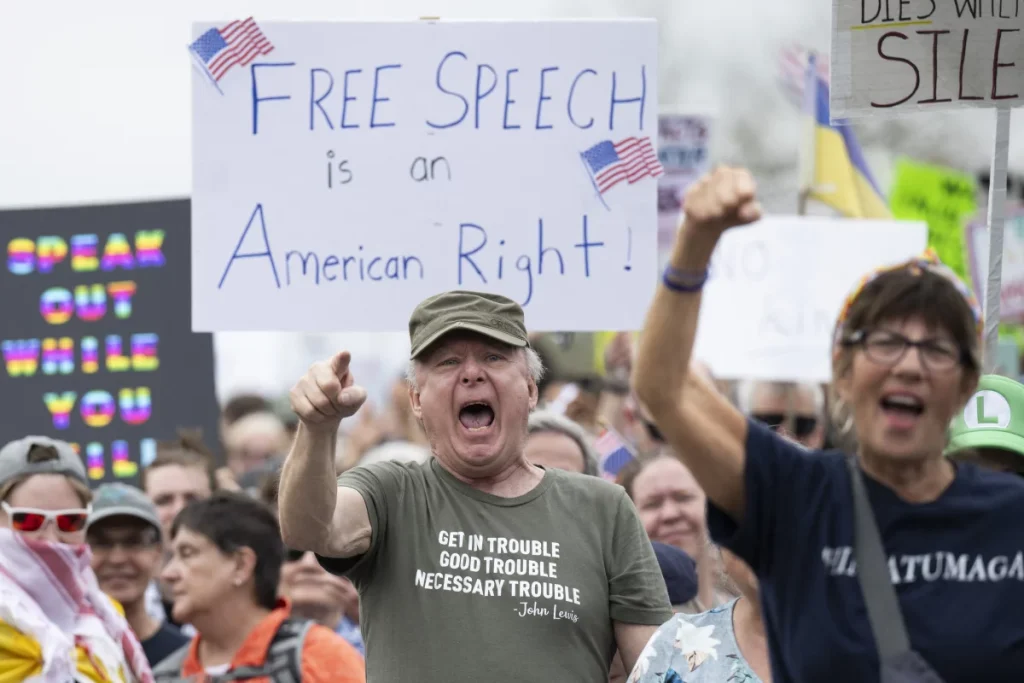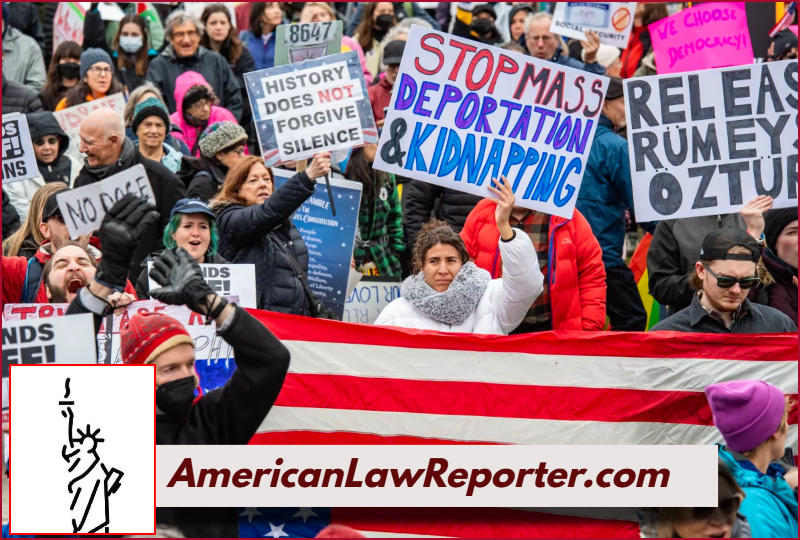On April 5, 2025, millions of demonstrators took to the streets across the United States and several major international cities in a coordinated global movement known as the “Hands Off!” protests.
These protests were largely driven by concerns over President Donald Trump’s return to power, controversial new federal policies, and the increasing influence of tech magnate Elon Musk on public institutions and civil discourse.
The protests have raised significant legal and constitutional questions, particularly around the rights to free speech, assembly, government overreach, and digital surveillance.
The Scope of the Protests

From Los Angeles to London and from New York to Nairobi, demonstrators flooded public spaces with signs reading “Hands Off Our Rights,” “Hands Off Our Bodies,” and “Hands Off Our Future.”
The demonstrations were notable not only for their massive scale but also for their diverse coalitions, including civil rights organizations, women’s advocacy groups, LGBTQ+ activists, labor unions, and environmental movements.
In the U.S., protests occurred in nearly every state and were largely peaceful, though some cities reported police crackdowns, arrests, and heavy surveillance. Organizers claim the movement aims to resist policies they say restrict bodily autonomy, censor free speech, and erode democratic norms—often citing recent policy proposals and executive actions from the Trump administration.
Legal and Constitutional Implications
The “Hands Off!” protests have re-ignited longstanding debates about the limits and protections of the First Amendment. Legal experts are closely monitoring whether responses by law enforcement and local governments cross constitutional lines, especially when peaceful demonstrators are arrested or dispersed without clear justification.
While the American Civil Liberties Union (ACLU) and other legal organizations have released statements in support of protestors’ rights and are actively monitoring reports of police misconduct, there have been no publicly confirmed lawsuits filed by the ACLU as of April 7, 2025 in direct response to these demonstrations.
The ACLU of Maine, for example, highlighted the Portland protest on its website, describing it as part of a broader campaign to defend civil liberties.
However, public court records and press releases do not indicate any immediate legal action stemming from the April 5 events. This distinction is important, as media coverage and social media discussions have sometimes implied a more aggressive legal posture than what has actually occurred.
The Musk Factor: Free Speech or Suppression?
A unique element in these protests is the central role played by Elon Musk, CEO of X (formerly Twitter) and current Department of Government Efficiency Chief. Critics allege that Musk’s influence has led to the censorship of dissenting voices and suppression of information on public platforms, especially when those voices challenge government narratives.
Legal scholars are concerned that Musk’s dual roles—as a powerful tech executive and a federal official—blur the lines between private and government censorship.
If proven, this may implicate constitutional protections under the First and Fourth Amendments, especially if tech platforms are found to be acting under government direction to limit speech or collect data on users involved in protest activities.
International Human Rights Considerations
The global participation in the “Hands Off!” protests underscores that the issues at stake transcend U.S. borders.
Human rights groups, including Amnesty International and Human Rights Watch, have warned that government crackdowns on peaceful protests—whether through surveillance, arrests, or media suppression—may violate international norms under treaties like the International Covenant on Civil and Political Rights (ICCPR).
Foreign governments that suppressed protest activity over the weekend could face scrutiny if international observers deem their actions as disproportionate or abusive.
What Comes Next?
With Donald Trump’s policies stirring domestic backlash and international criticism, legal observers expect ongoing challenges in the courts and continued scrutiny of protest-related policing.
Additionally, watchdog groups are urging Congress to investigate the role of private tech companies—especially those with ties to government—in possibly infringing on civil liberties.
The legal fallout from the April 5 protests will likely unfold over the coming months, especially if new evidence emerges of constitutional violations. Advocates urge citizens to document abuses and remain engaged in protecting democratic freedoms.
For now, the “Hands Off!” protests demonstrate that the right to dissent remains a vital, and often contested, element of both national and global democracy.
If you attended or witnessed incidents at the ‘Hands Off!’ protests and want to report your experience, organizations like the ACLU, NAACP, and National Lawyers Guild are collecting statements.
Contact Info:
American Law Reporter
americanlawreporter@gmail.com
Facebook: AmericanLawReporter

